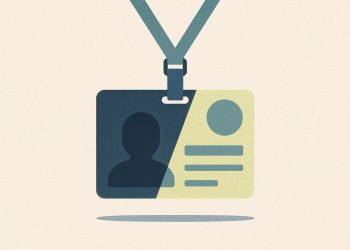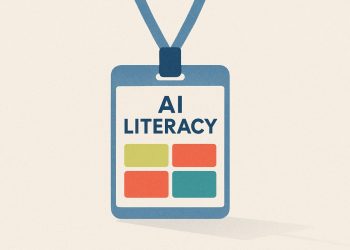In 2025, knowing how to use AI is a must for professionals. Easy lessons and real-life examples help people learn to use AI tools, making work faster and easier. The report shows that using AI boosts productivity and saves hours each week, even for those who aren’t tech experts. With more companies focusing on AI skills, learning about AI is now seen as a key part of every job.
What is actionable AI literacy and why is it essential for professionals in 2025?
Actionable AI literacy enables professionals to confidently use AI tools through practical micro-lessons, real-world case studies, and step-by-step workflows. In 2025, it’s essential for boosting productivity, cutting administrative time, and advancing careers as AI becomes integral across all industries.
A new wave of AI literacy resources is transforming how professionals engage with artificial intelligence in 2025. The latest “Actionable AI Insights” report delivers clear, practical guidance that helps 400,000+ professionals worldwide master AI in minutes per day, specifically designed for those without technical backgrounds.
Key findings from the report
| Metric | Value | Impact |
|---|---|---|
| Productivity boost | 66% average improvement | Across all business tasks when workers use AI effectively |
| AI adoption | 91% of businesses | Now use AI to cut administrative time by 3.5+ hours weekly |
| Confidence gap | 78% lack confidence | Despite 48% expecting AI to change their job responsibilities |
| Reskilling plans | 77% of employers | Plan to reskill employees for AI collaboration by 2030 |
What makes this report different
The report focuses on “no fluff – just results” approach, making AI accessible through:
- Daily micro-lessons taking 5-10 minutes
- Real-world case studies from marketing, HR, finance teams
- Step-by-step workflows for integrating AI into existing processes
- Ethical guidelines for responsible AI use
Global AI literacy landscape 2025
- 69% of leaders now consider AI literacy essential for daily workflows (up from 62% in 2024)
- Only 9% of business leaders say AI is unused in their organizations
- 83% of workers believe AI increases importance of human creativity and soft skills
Practical applications covered
The report includes tested frameworks for:
- Content creation: 40-60% faster production using AI assistants
- Customer service: 35% improvement in response quality
- Programming tasks: 126% productivity gains
- Data analysis: Democratizing insights across departments
Global initiatives supporting the movement
Major programs now support professional AI literacy:
- Microsoft’s $4 billion initiative to train 20 million people globally
- European Commission framework making AI education mandatory
- UNESCO’s digital divide programs ensuring equitable access
- Coursera’s 2025 Global Skills Report tracking AI readiness by country
Economic impact projections
McKinsey estimates generative AI could add $2.6-4.4 trillion annually to global economy. Companies using AI report up to 40% increases in workforce performance when proper training accompanies implementation.
The report positions AI literacy as core workplace competency for 2025, moving beyond optional skill to essential capability for career advancement across all industries.
FAQ: Actionable AI Literacy for the 2025 Professional Workforce
How much can AI literacy improve my daily productivity?
According to the most recent 2025 data, AI-literate workers report an average productivity jump of 66 % across typical business tasks. Programming tasks see the largest gain at 126 %, while customer service and content-creation roles improve by 35 %–60 %. In minutes a day of practice, these translate into hours of saved effort each week.
Do I need a technical background to benefit from AI tools?
No. The report is explicitly designed for professionals without a technical background. The focus is on “no fluff – just results”, offering step-by-step use cases and plug-and-play templates that let marketers, HR staff, sales reps, and other non-technical roles start seeing value immediately.
What kinds of new roles are being created by AI adoption?
AI is expected to create 133 million new jobs globally by 2025 while displacing 75 million, for a net gain of 58 million positions. Emerging titles include AI trainer, prompt engineer, and AI governance specialist. Roles most at risk are routine data-entry and basic-analysis jobs, while creative, strategic, and interpersonal roles expand.
Which regions feel most confident using AI for complex work?
Confidence levels vary by geography. APAC and EMEA lead with 93 % of workers saying they feel ready to use AI on complex tasks. North America trails at 82 %, highlighting both a skills gap and an opportunity for targeted upskilling programs.
What practical steps can I take right now to boost my AI skills?
- Start micro-learning: 5- to 10-minute daily drills are proven to drive retention.
- Use AI-powered skill-gap tools: Platforms now offer machine-learning assessments that pinpoint exactly where you need training and recommend personalized courses.
- Embed learning in your workflow: Organizations that integrate bite-sized AI lessons into everyday tasks see the fastest proficiency gains.



















